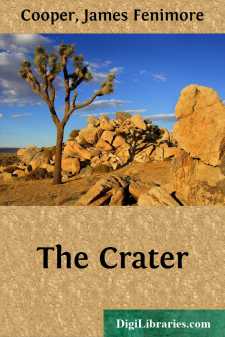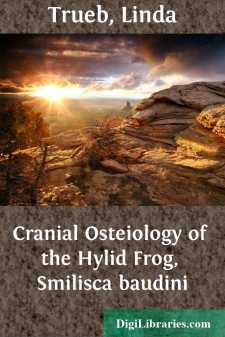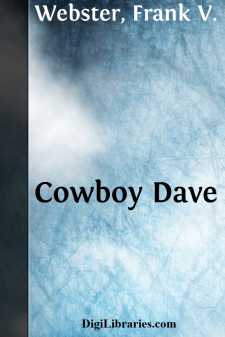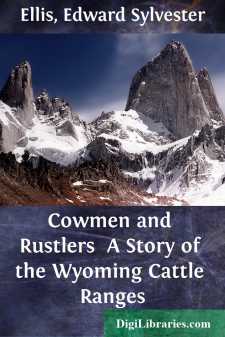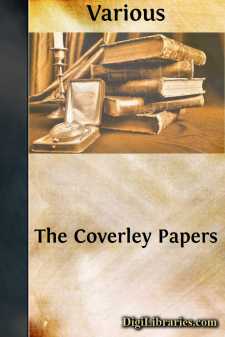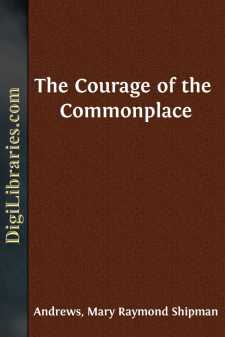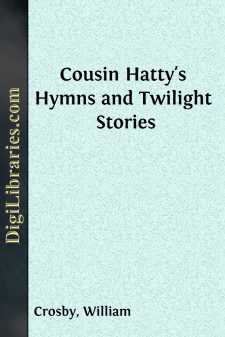Fiction
- Action & Adventure 180
- Biographical 15
- Christian 59
- Classics
- Coming of Age 5
- Contemporary Women 3
- Erotica 8
- Espionage/Intrigue 12
- Fairy Tales, Folklore & Mythology 236
- Family Life 169
- Fantasy 117
- Gay 1
- General 596
- Ghost 32
- Historical 808
- Horror 43
- Humorous 160
- Jewish 25
- Legal 4
- Medical 22
- Mystery & Detective 315
- Political 49
- Psychological 41
- Religious 64
- Romance 159
- Sagas 11
- Science Fiction 730
- Sea Stories 113
- Short Stories (single author) 537
- Sports 10
- Suspense 1
- Technological 8
- Thrillers 2
- Urban Life 31
- Visionary & Metaphysical 1
- War & Military 173
- Westerns 199
Classics Books
Sort by:
Chapter I. "'Twas a commodity lay fretting by you; 'Twill bring you gain, or perish on the seas." Taming of the Shrew. There is nothing in which American Liberty, not always as much restrained as it might be, has manifested a more decided tendency to run riot, than in the use of names. As for Christian names, the Heathen Mythology, the Bible, Ancient History, and all the classics,...
more...
MOUNTJOY OR SOME PASSAGES OUT OF THE LIFE OF A CASTLE-BUILDER I was born among romantic scenery, in one of the wildest parts of the Hudson, which at that time was not so thickly settled as at present. My father was descended from one of the old Huguenot families that came over to this country on the revocation of the edict of Nantz. He lived in a style of easy, rural independence, on a patrimonial...
more...
by:
Goldwin Smith
CHAPTER I. EARLY LIFE. Cowper is the most important English poet of the period between Pope and the illustrious group headed by Wordsworth, Byron, and Shelley, which arose out of the intellectual ferment of the European Revolution. As a reformer of poetry, who called it back from conventionality to nature, and at the same time as the teacher of a new school of sentiment which acted as a solvent upon...
more...
by:
Linda Trueb
Olfactory Region Alary cartilage.—The anterior end of the alary cartilage (al. c., ) lies within the posterior concavity of the alary process(al. proc.,) of the premaxillary (pmax.). In posterior sections the cartilage assumes a dorsolateral position (), ventral and slightly lateral to the tectum nasi. The alary cartilage remains narrowly separated from the tectum nasi but fuses ventromedially with...
more...
by:
Frank V. Webster
CHAPTER I AFTER STRAY CATTLE "Hi! Yi! Yip!" "Woo-o-o-o! Wah! Zut!" "Here we come!" What was coming seemed to be a thunderous cloud of dust, from the midst of which came strange, shrill sounds, punctuated with sharp cries, that did not appear to be altogether human. The dust-cloud grew thicker, the thunder sounded louder, and the yells were shriller. From one of a group of dull,...
more...
CHAPTER I. A MERRY GROUP. The Whitney household, in the western part of Maine, was filled with sunshine, merriment and delight, on a certain winter evening a few years ago. There was the quiet, thoughtful mother, now past her prime, but with many traces of the beauty and refinement that made her the belle of the little country town until Hugh Whitney, the strong-bearded soldier, who had entered the war...
more...
by:
Various
It is necessary to study the work of Joseph Addison in close relation to the time in which he lived, for he was a true child of his century, and even in his most distinguishing qualities he was not so much in opposition to its ideas as in advance of them. The early part of the eighteenth century was a very middle-aged period: the dreamers of the seventeenth century had grown into practical men; the...
more...
The girl and her chaperon had been deposited early in the desirable second-story window in Durfee, looking down on the tree. Brant was a senior and a "Bones" man, and so had a leading part to play in the afternoon's drama. He must get the girl and the chaperon off his hands, and be at his business. This was "Tap Day." It is perhaps well to explain what "Tap Day" means;...
more...
by:
Orson Lowell
THE MARTYRDOM OF "MEALY" JONES A WAIL IN B MINOR Oh, what has become of the ornery boy, Who used to chew slip'ry elm, "rosum" and wheat: And say "jest a coddin'" and "what d'ye soy;" And wear rolled-up trousers all out at the seat? And where is the boy who had shows in the barn, And "skinned a cat backards" and turned "summersets;" The boy...
more...
by:
William Crosby
THE FIRST HYMN. God made the bright, round sun; He made the pretty flowers; The little birds, the trees, the clouds The rain that falls in showers. He made papa, mamma, And baby brother, too; And mother says He looks from Heaven, And sees each thing I do. Then I must try to be Pleasant, and sweet, and mild; For the good God who made me loves A kind, obedient child. Now again the yellow sun Shines upon...
more...


